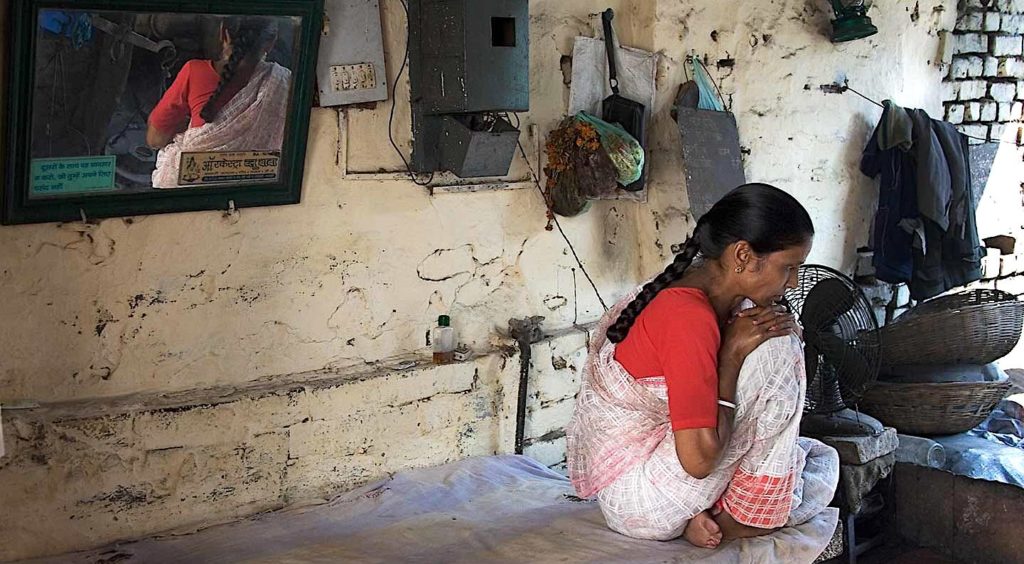Photo courtesy of IndiaSpend
In an effort to address Sexual and Gender-Based Violence (SGBV) Médecins Sans Frontières (MSF) Doctors Without Borders South Asia, in collaboration with the People’s Archive of Rural India (PARI), has launched Breaking the Silence: Journey of SGBV Survivors, an initiative that seeks to amplify the voices of survivors, shed light on their stories of resilience and highlight the systemic issues that perpetuate such violence, particularly in rural India.
The project brings to light five harrowing accounts reported by journalists across India that illustrate the complex intersections of gender, caste, patriarchy and systemic failures.
Seeking justice in a broken system
For survivors of sexual harassment, filing a case is often only the beginning of their ordeal. Police officers handling such cases frequently lack training, empathy or the motivation to pursue justice. Female officers, expected to provide support, are constrained by systemic hierarchies and limited resources. Survivors are left battling stigma, procedural delays and a lack of accountability within law enforcement. The result is a culture where justice feels out of reach and survivors are left questioning whether speaking out was worth the emotional toll.
Amplifying voices of resilience
SGBV remains one of the most pervasive human rights violations globally. Its devastating impact is often amplified in rural and marginalised communities where survivors face systemic neglect and cultural stigmas. Recognising this gap, MSF South Asia joined forces with PARI, a storytelling platform dedicated to capturing voices from India’s rural heartlands. As for corporate leaders and policymakers, initiatives such as Breaking the Silence underscore the importance of investing in social impact programs that address gender equity.
At the heart of Breaking the Silence are powerful narratives of courage and survival. These stories, documented by journalists working in some of India’s most marginalised and overlooked regions, provide an unflinching look at the realities of SGBV. Survivors speak of the immense trauma they have endured but their stories are also testaments to their strength and determination to reclaim their lives.
The project sheds light on the brutal challenges faced by survivors including stigma, lack of institutional support and cultural barriers and on the intersection of gender, caste and socio-economic factors that make SGBV even harder to address in rural communities. These narratives reflect not just individual experiences but broader systemic failures from inadequate healthcare and legal support to societal norms that silence victims.
A migrant woman’s nightmare
In Rajasthan, a young woman faced brutal violence that highlights the vulnerability of migrant women. After being abducted, enslaved and subjected to sexual violence, she returned to her family pregnant and refused to reunite with her husband. But her ordeal was far from over. Her husband, accompanied by his friends, retaliated with the horrific act of gang-raping her in an attack that reflected the region’s entrenched patriarchal norms.
“For women migrating alone, the risks are magnified,” pointed out journalist Priti David, adding that language barriers, cultural divides and poor awareness of rights leave migrant women particularly vulnerable, especially on construction sites. In Rajasthan, the societal response remains one of silence and indifference, underscoring the urgent need for systemic change and survivor-centric policies.
The intersection of caste, gender and identity
Sumit, a Dalit transgender man from Haryana, navigates life at the intersection of caste discrimination and gender identity. He has endured psychological and emotional violence from institutions that were supposed to protect him.
His struggles highlight the ways in which systemic oppression compounds marginalisation for Dalit trans individuals. Yet despite the adversity, Sumit maintains a positive outlook. “I fight because I know my story can give someone else hope,” he said. His resilience calls attention to the need for inclusive policies that recognise and address the complexities of caste and gender-based violence.
From Assam to the brothels of Delhi
A call from a social worker in Assam led to the rescue of a young woman from a Delhi brothel. The police insisted she was a minor but the victim claimed otherwise. “I have a birth certificate that says I’m 22 but I’m not even sure of my age,” she said. What was certain, however, was the abuse she endured.
Sold into the red light district by her cousin brother and his friend, who had earlier subjected her to abuse at home, her story reflects the dark realities of sex trafficking and childhood trauma. Now in a rehabilitation centre, the woman remains unsure of her future, her trauma compounded by a legal system that often fails to serve survivors.
“Many sex trafficking victims are also victims of childhood abuse,” noted journalist Pari Saika, who acted as her translator. Her story sheds light on the cyclical nature of violence and the need for comprehensive survivor support.
Ten years of enslavement
Jaagri’s ordeal began when she was abducted from Lucknow in broad daylight and enslaved for 10 years. Subjected to repeated sexual assault and forced labor, Jaagri was finally rescued but freedom brought little relief. Three years later she remains trapped in legal limbo, struggling to navigate a system that has failed her at every turn.
Key evidence has been lost over the years, stalling her case in court. In addition to significant psychiatric challenges, Jaagri’s pursuit of justice is constrained by systemic failures that prioritise procedure over survivors’ wellbeing. Her story is a haunting reminder of how legal and institutional shortcomings often retraumatise survivors instead of delivering justice.
The project reveals painful truths about SGBV and its enduring impact. The five stories are powerful testimonies of survival, resilience and the urgent need for reform. Survivors are often let down by the systems meant to protect them – legal, social and institutional. Their experiences underscore the need for stronger support structures, comprehensive legal reforms and survivor-centered approaches to justice. Better access to healthcare, legal justice and community-based support are vital to address the root causes of SGBV.
